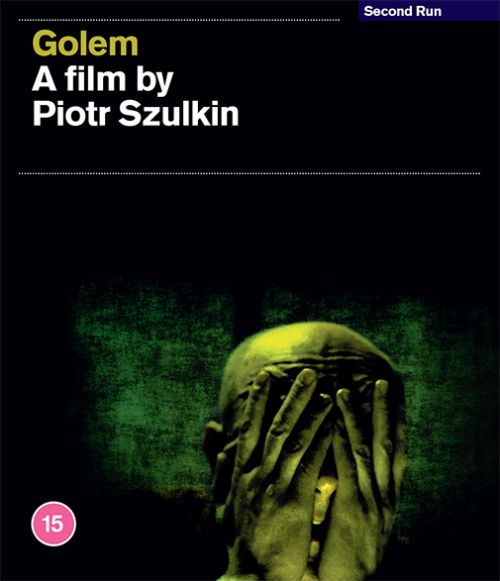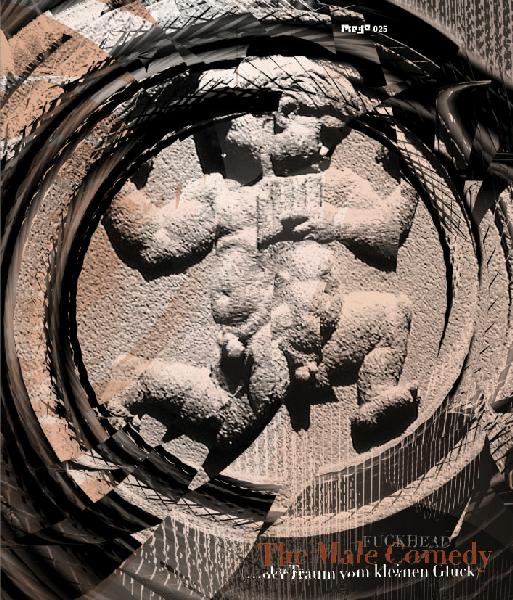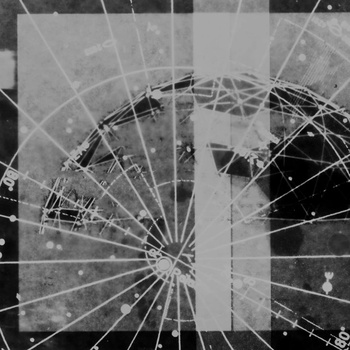 I must confess that even as a massive SF nerd, I had never heard of Pyotr Szulkin’s Golem, which has just been re-released by Second Run in a handsome blu-ray edition.
I must confess that even as a massive SF nerd, I had never heard of Pyotr Szulkin’s Golem, which has just been re-released by Second Run in a handsome blu-ray edition.
Going to the internet for research, it seems like a lot of people are in a similar situation, because it has very little online presence. Which is a real shame, because it’s something of an overlooked gem in Polish cinema, and indeed in SF cinema in general. Based on the old Jewish legend of the Golem, as well as the classic Gustav Meyrinck novel, the film posits a dystopian society in which science has created artificial humans. One of these, a man named Pernat, is suspected of being human.
In taking the action away from Prague, where Meyrinck’s gothic horror takes place, Szulkin performs the neat trick of also bringing along another famous resident of that city — Golem is as much Franz Kafka as it is Meyrinck, if not more so. Which seems a pretty obvious link to make given the subject matter, but he goes a bit deeper than that.You know the bits in Kafka that AREN’T specifically about personal isolation and the crushing weight of bureaucracy? You know, the bits were people are just fucking weird in general and do weird shit all the time? Golem nails that perfectly. Kafka is more evident in the scenes in which Pernat interacts with his neighbours and various strangers he meets than he is in even the plot’s most traditionally Kafkaesque moments.
But that’s not to say Szulkin’s just stealing Kafka’s clothes. Some of the most effective weirdness in the film, in particular a scene in which Pernat takes sex worker Rozyna to the cinema, have their own wonderfully post-modern cinematic logic that Josef died several decades too soon to have even imagined. Golem is not overly bothered with the nuts and bolts of the thing — we get told in a couple of sentences right at the start that oh, by the way, there’s been some nuclear awfulness and now scientists are making fake people, and a brief scene showing part of the process that is mainly there so that Pernat can have some paper shoved in his mouth (as per the legend), but from that point on Szulkin is primarily concerned with character and imagery.It’s interesting that it predates Blade Runner by two years and covers much of the same ground while also being loosely adapted from a novel from which it takes the bare bones of the plot and discards the rest. In fact, Golem, with its constant barrage of oddness, is closer in tone to Philip K Dick at his most paranoid than Ridley Scott’s masterpiece ever becomes.
Comparisons have also been made to Andrei Tarkovsky’s Stalker and Solaris, and I can kinda see that. Visually it’s not hard to imagine the tenements and yards of Golem existing in the same world as Tarkovsky’s Zone, and a colour palette heavy on the yellow and greens (not to mention a lot of shots of a very bald man — Marek Walczewski, who plays Pernat with just the right level of naivete to intrigue but not quite annoy) also helps, not to mention the obvious Solaris comparisons when it comes to questions of who is a “real” human.Hopefully Golem will find a new audience;it’s a great little movie that deserves a place in the canon of high-concept science fiction. And the Second Run edition also comes with a bunch of Szulkin’s short films and, of course, the obligatory nice booklet. All in all it’s a really good package that serves as a wonderful reminder of a film that didn’t deserve to be forgotten in the first place.
It’s funny, it’s sad, it’s disturbing and frightening … it’s all the food groups, really. Massive recommendation from me.-Justin Farrington-




